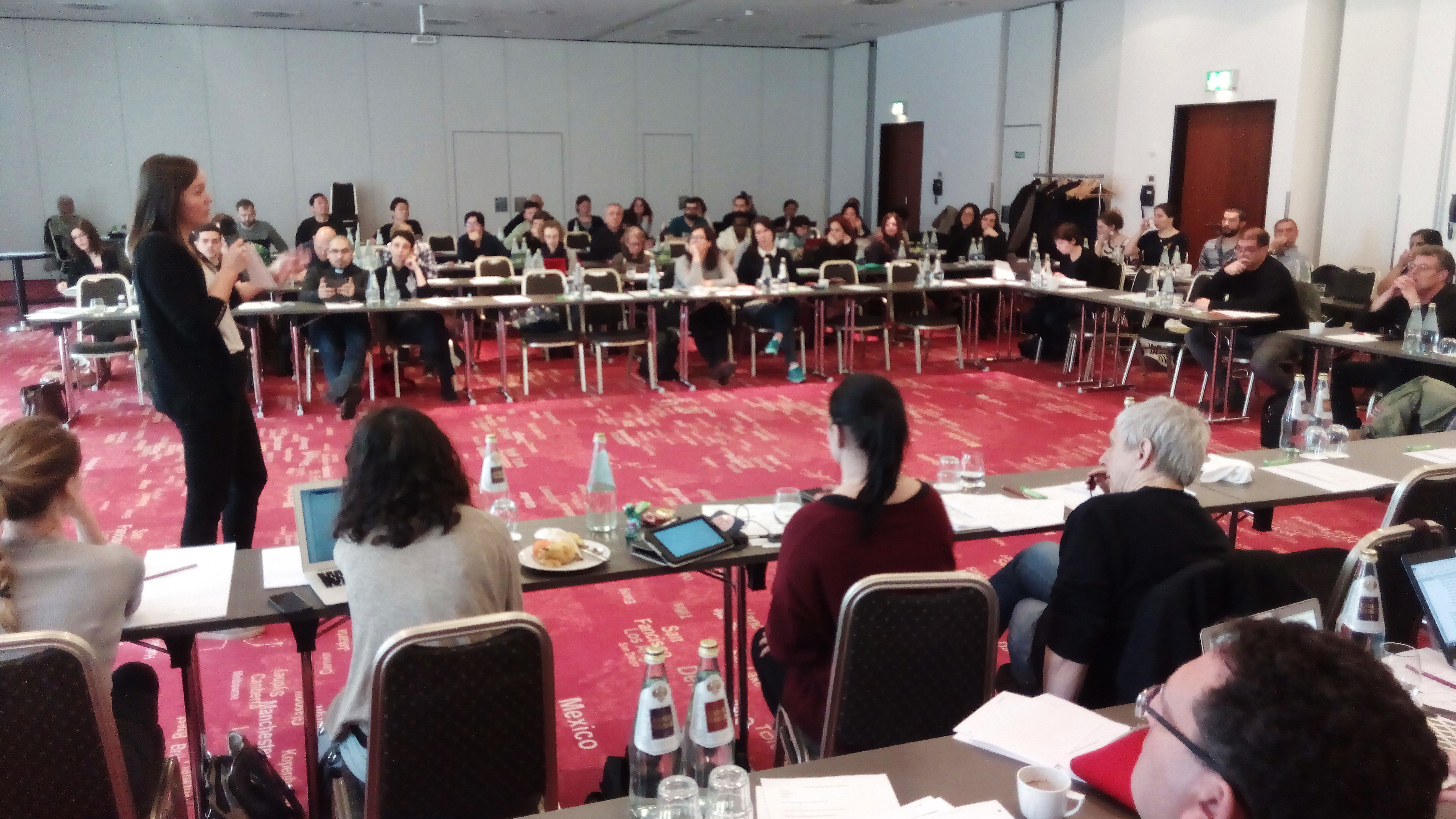Sunday 11 March was full of preparatory events for the 61st Session of the UN Commission on Narcotic Drugs. Here is an information about a few of them where DPNSEE participated.
IDPC pre-meeting with member organisations
The International Drug Policy Consortium held a day-long meeting with member organisations representatives to help them oriented to the CND participation and agree on approach and actions.
In the morning, two separate sessions were held. One was the orientation session for new CSO representatives. They also had an opportunity to learn about the CND through a webinar which is available at the IDPC website.
The other session was intended to those who already had experience with CND. It was a strategy discussion, focused on the substantive details of tabled resolutions, with overview of member states dynamics at the CND, detailed review of CND resolutions and discussion on other key issues for CND 2018.
In the afternoon session, participants from the second morning session informed others about their discussion on resolutions (and resolutions themselves) to inform collective thinking on advocacy, strategy and the work of the network during CND and beyond. This session also included presentation of the IDPC 5-year Strategy and opportunities for collaboration, a report from the civil society meeting held at the end of 2017 in Berlin and presentation of the IDPC Members Survey results.
There are a few interesting things from this event.
An interesting proposed resolution is the one from the CND Chairperson addressing the Preparations for the sixty-second session of the Commission on Narcotic Drugs, in 2019. The resolution already includes various positive elements, but should be strengthened my emphasising the role of the UN Secretary-General, references to civil society participation, active participation of all UN member states (not only 53 CND countries) and mentioning harm reduction in country presentations at the CND debate. This is very important because it is obvious that unrealistic targets of a “drug-free world” declared in 2009 Plan of Action will not be achieved. The world now have two possible ways forward: either continue with same policies that have proven insufficient (promoted by countries with rigid and conservative approach) or promote an active approach which bring public health and human rights to core of drug policy.
WHO proposes 12 substances for control – 6 of them are fentanyl based.
There will be 95 side events at CND – an invitation was shared to go to those which are critical. The same goes for some of the exhibitions of “usual suspects” (Russia, Singapore, Bahrain, Turkey… and especially Iran).
IDPC Asks from the Strategy include:
- Move away from drug-free world targets
- Reflect the UN goals of promoting health, human rights, development, peace and security
- Reflect the realities of drug policies on the ground, both positive and negative – the elephant in the room
- End punitive approaches and put people and communities first
Deadline for comments to the IDPC Strategic Plan is end of April.
SSDP Rally
Students for Sensible Drug Policy Austria organised a rally in the Vienna’s Sigmund Freud Park in the afternoon and evening. It was the first local CSOs event related to UN Commission on Narcotic Drugs held annually in this city. Besides stands which promoted new approach to drug policy and abandoning the “drug war”, several speakers addressed the public, including representatives of Anyone’s Child: Families for Safer Drug Control, INPUD, Global Drug Survey, Veterans for Medical Marijuana, ENCOD — European Coalition for Just and Effective Drug Policies, ARGE CANNA and LISTE PILZ.












